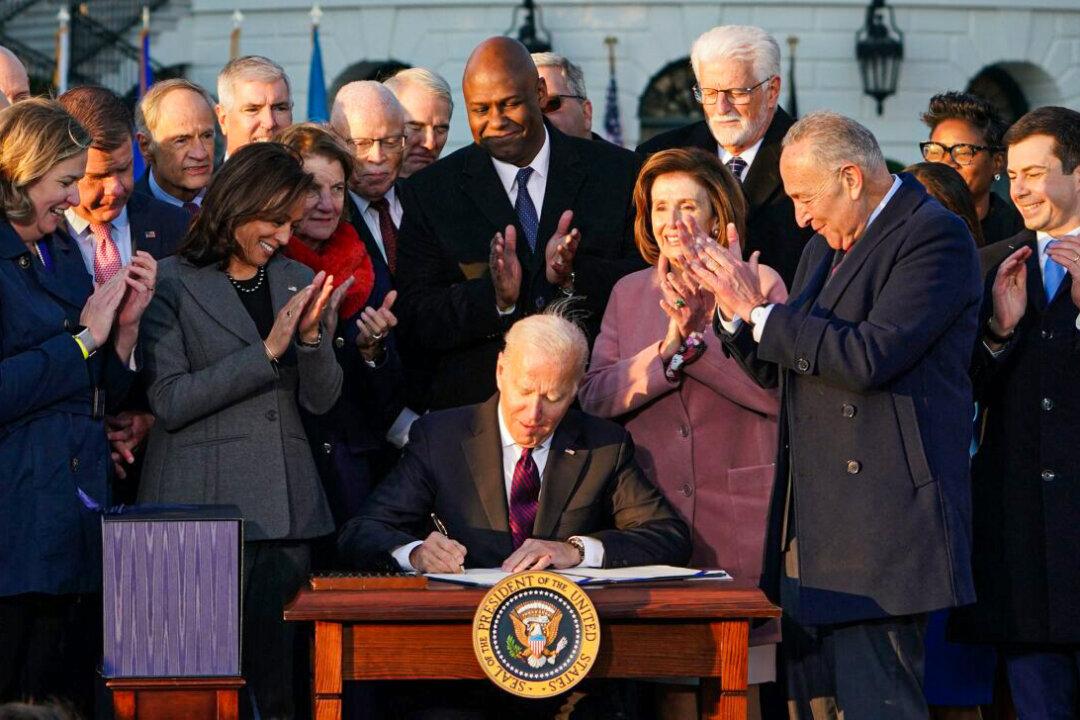A Florida small-business owner is suing the Biden administration for racial and gender discrimination in connection with the $1.2 billion Infrastructure Investment and Jobs Act, which Biden signed into law in November 2021.
Christian Buckner, a disabled immigrant, filed a federal lawsuit on July 13, challenging a stipulation in the law that declares him ineligible to bid on $37 billion in government infrastructure contracts solely because he’s white and male. Buckner is represented by the Equality Under the Law Project, which has won all three of its prior racial discrimination cases against the Biden administration.





